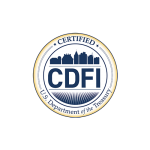
Millions of Americans are challenged by medical debt every year. According to data from the U.S. Census Bureau, 19% of American households could not afford to pay for their medical care and are behind in payments. Americans are estimated to collectively owe as much as $140 billion in outstanding medical debt.
Lack of insurance is one main drivers for unpaid medical debt. An estimated 31.2 million U.S. residents under the age of 65 in the U.S. are uninsured. Many people do not have the option of obtaining health insurance through work and others are self-employed and unable to afford the high insurance premiums.
Unfortunately, many uninsured people forego the medical care they need. This includes doctor appointments, tests, treatments, and prescription medications. As people struggle to pay medical bills, they can often fall behind on other bills, deplete their savings and damage their credit.
What are your options when faced with medical bills you can’t afford to pay? Fortunately, there are some things you can do to help. First be proactive. Resolve to face the problem head on rather than ignoring the situation and try these strategies for reducing what you owe.
Get organized
Keep everything! That includes all receipts, insurance forms, bills, and anything else that relates to your medical care and create a system so you can keep track of them. Try making a file for each provider and organize the bills by date of service. If you don’t receive itemized bills, request them. Being organized helps you to challenge anything that doesn’t look right.
Look for errors on the explanation of benefits form
Your insurance company will send you an explanation of benefits form. This form will detail the medical service provided, date provided, how much your plan pays, and how much you owe. Look for errors on this form. Various sources estimate that somewhere between 7% to 80% of all medical bills contain errors.
Search for duplicate items, services you didn’t receive, services you don’t recognize, and charges that your insurance should have covered. Review your healthcare providers’ bills to make sure your insurance has paid them accurately. Call your insurance company or your provider’s billing department to clarify anything you don’t understand.

What to do if there’s a mistake?
If you think your doctor or hospital has made an error, here are some things you can do. First contact your insurance company and discuss your concern. Most likely they will need to conduct a review.
Start to document all of your interactions. Ask for a timeframe and establish a date for a follow up. If you have to provide additional information, get all the specifics. Make certain you understand exactly what they are asking for and when it must be provide. Get the full name of the person you spoke with. Send a letter or email confirming your conversation.
Request a written explanation of denial if you’re still unsatisfied. To save your credit rating, pay the bill yourself, or negotiate a payment arrangement with the medical provider. Then use the insurance company’s appeal process as soon as possible to collect your money.
Negotiate Your Bill
After reviewing your bill, if you believe there is an error or you need to make payment arrangements contact the medical billing manger immediately and document the exchange. Remember it is important to respond promptly. Do not wait until the bill is delinquent.
To negotiate your bill, contact your healthcare provider’s medical billing manager. This is the person who actually has the authority to lower your bill.
You can request hardship assistance if you are low income or are experiencing financial hardship or challenged by medical debt. This can apply even if the hardship is due entirely to your medical bills.
Let your providers know if medical problems have affected your income and ability to pay. Hospital charity care may be available based on your income and savings. Some hospitals are required by state law to provide free or reduced services to low-income patients.
Use in-network healthcare providers
Be sure to ask your primary care provider to refer you to in-network healthcare professionals whenever possible and, once you have a referral, confirm the provider’s in-network status when you make your appointment. This will help to avoid out-of-network charges.
Be price-aware before you go in for a planned procedure.
When scheduling for a planned procedure, ask about pricing. An MRI, for example, can be considerably less expensive at a stand-alone diagnostic facility than at a hospital.
Many insurers have online tools that can help you estimate your portion of the payment related to specific procedures, tests, or surgeries. This can help you compare prices charged by doctors, hospitals, and diagnostic testing facilities. If your insurer doesn’t have a cost estimator, sites such as Healthcare Bluebook or FAIR Health can help you compare prices.

Inquire about prescription options.
Don’t be afraid to ask for a generic alternative. Generics are often cheaper than the brand name and can be just as effective. However, you need to ask your healthcare provider to prescribe them.
Advocate for Yourself
Another strategy for reducing the overall cost is to ask for a discount for immediate payment. If you are in the position to pay, try asking for a 25% discount if you make a large down payment now. This strategy can work because your provider will save time and money if they don’t have to pursue payment from you for months or years.
If you can’t arrange a reduced payment, ask about a zero-interest payment plan. Whatever terms your provider accepts, make sure to get them in writing. If you’re challenged by medical debt, do not hesitate to reach out for help.
Get Outside Help
If you are unable or too sick to deal with billing issues, seek the help of someone who is skilled at it. Contact a medical caseworker, debt negotiator, or medical billing advocate to assist you. These professionals can advocate on your behalf to reduce what you owe.
A caseworker may be able to refer you to charities, churches, community organizations, and government agencies that can offer financial assistance.
Medical billing advocates are insurance agents, nurses, lawyers, and healthcare administrators who are familiar with the process. They’ll look for errors, negotiate bills, and appeal excessive charges. However, you should expect to pay an advocate around 30% of the amount by which your bill is reduced.
The Bottom Line
High medical bills place many American families in financial stress. Don’t just accept all the bills without question. Know that billing errors are common and that they can be challenged. Make an effort to work with your insurance company and the hospital to reduce cost. Control what you can and get assistance where ever possible.
It is difficult enough to recover from your illness, so seek any help that is available. If you feel challenged by medical debt, don’t be afraid to get outside help from an expert.






